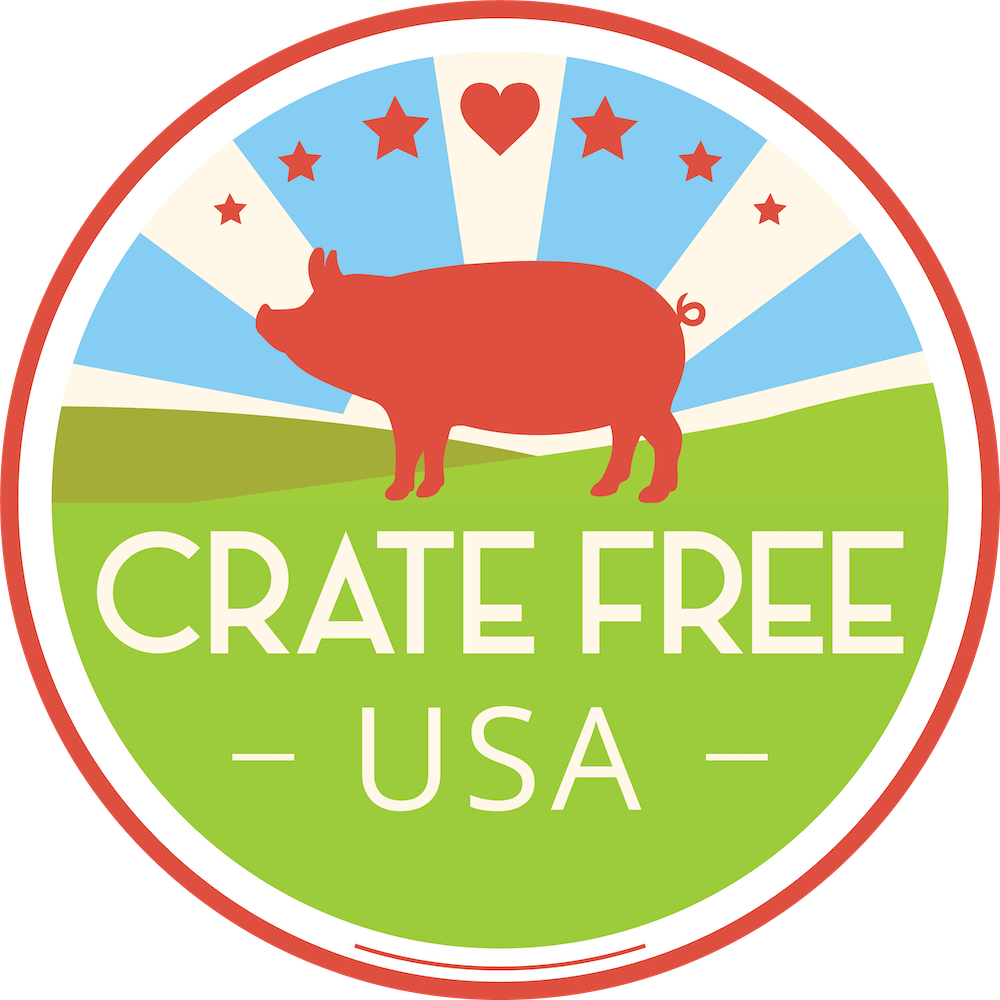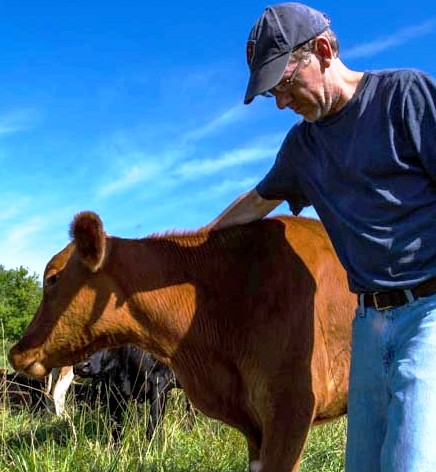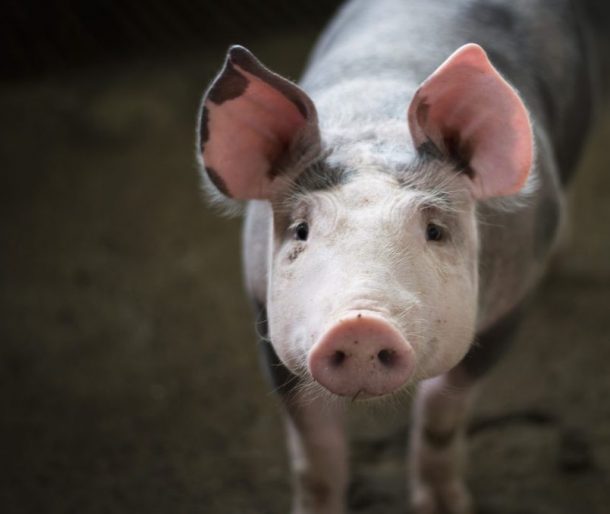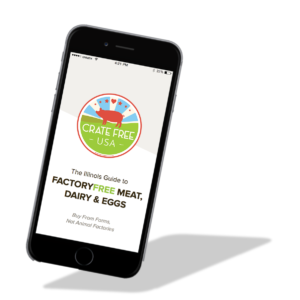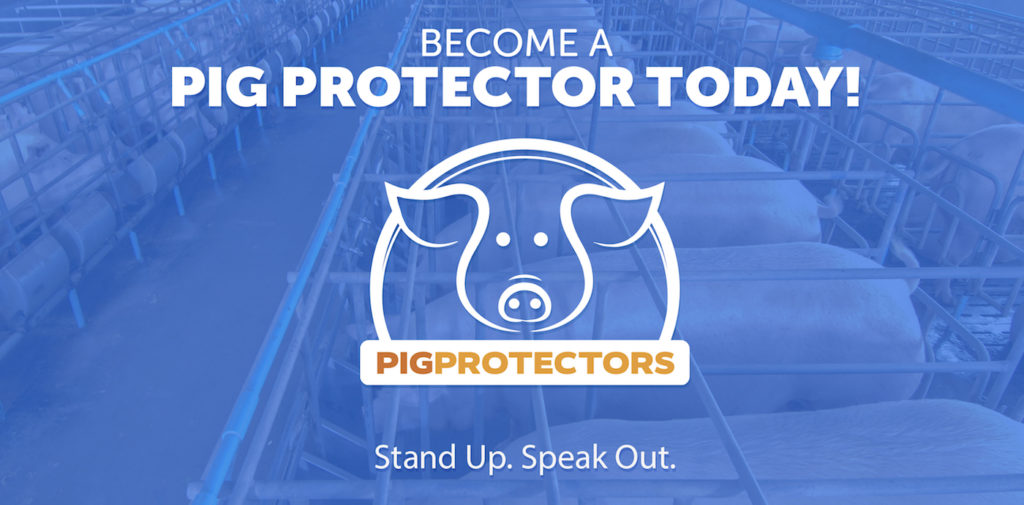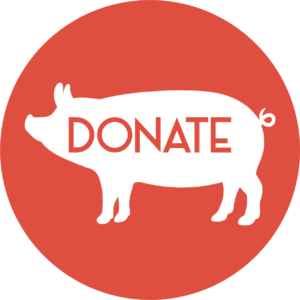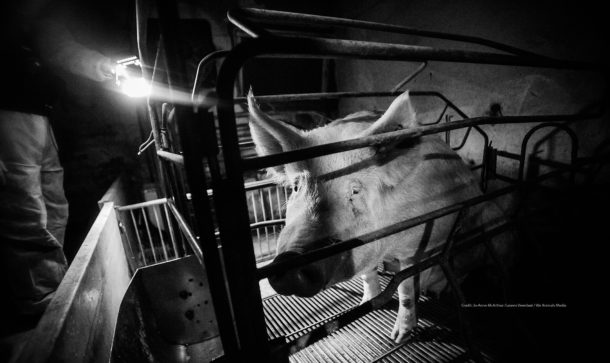Meet Sustainable Farmer Cliff McConville
Insurance broker turned sustainable farmer Cliff McConville owns All Grass Farms, a 150 acre farm in Dundee, Illinois. Cliff’s farm animals are humanely pasture-raised and largely grass fed, with no pens or cages. They are free to roam and forage in grass and the open air as nature intended.
Cliff is a member of the Humane Society’s Illinois Agricultural Advisory Council, a Crate Free Illinois supporter, and his farm is featured on the Crate Free USA mobile app because it adheres to ethical guidelines and practices which use ‘regenerative’ farming techniques which respect the environment and the humane treatment of farm animals.
In the Q & A below Cliff tells us how he got into farming, what he sees as the main problems with current farming techniques, his views on the economics of farming, extreme confinement, and whether he’d support a bill to ban this and the future for Illinois farmers.
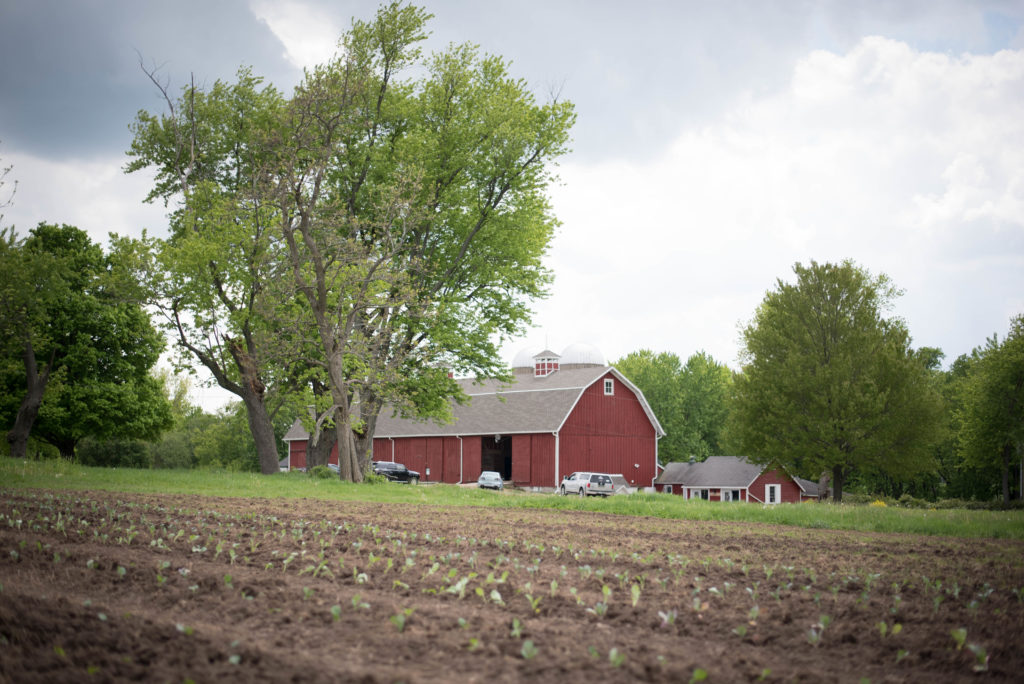 The Barn
The Barn
Q & A with Sustainable Farmer Cliff McConville
Where is your farm located?
All Grass Farms is at 18N681 IL Route 31 in Dundee, IL. Just north of Elgin. We have a farm store on site that is open daily from 10 AM – 6 PM.
What kind of animals do you have?
We are a very diverse farm with beef cattle, dairy cattle, sheep, pigs, chickens, and turkeys, plus about 8 acres of vegetables.
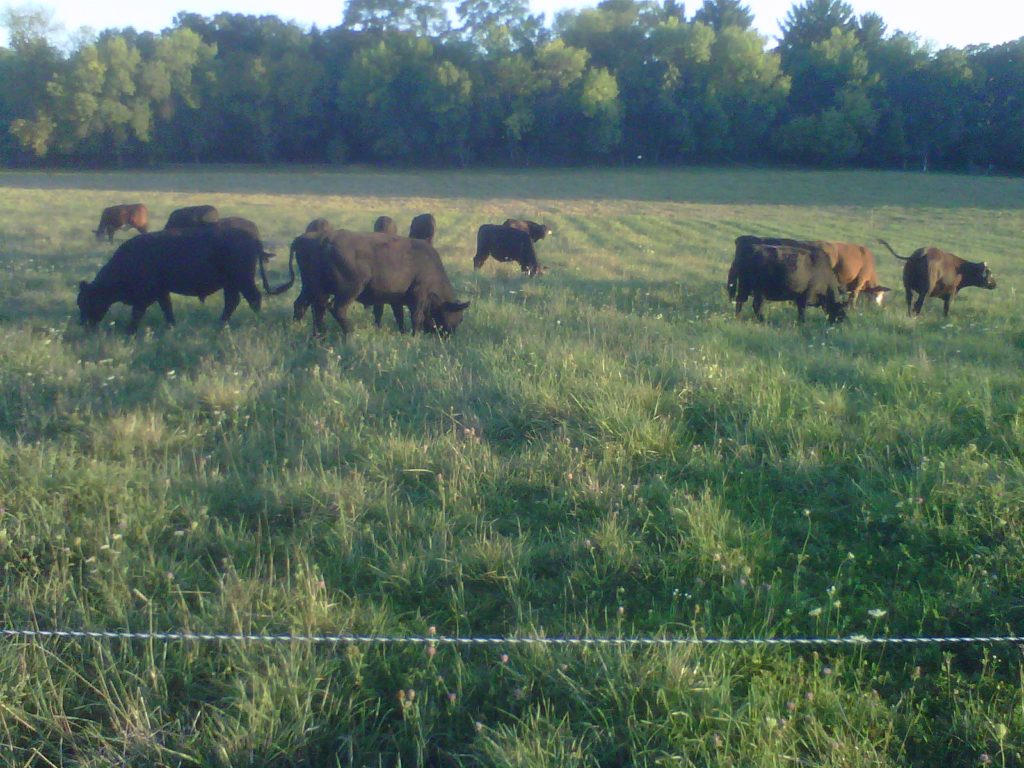
Beef Herd on Grass at All Grass Farms
Roughly how large is the farm?
We are currently farming on 150 acres but hope to add another 40 acres of pasture this year.
Is it cage-free, pasture-raised, both?
All of our animals are raised on rotated pastures, no cages or pens whatsoever. The laying hens spend their winters in the hoop house to keep them warm, however they still have access to an outdoor fenced area on all but the coldest days.
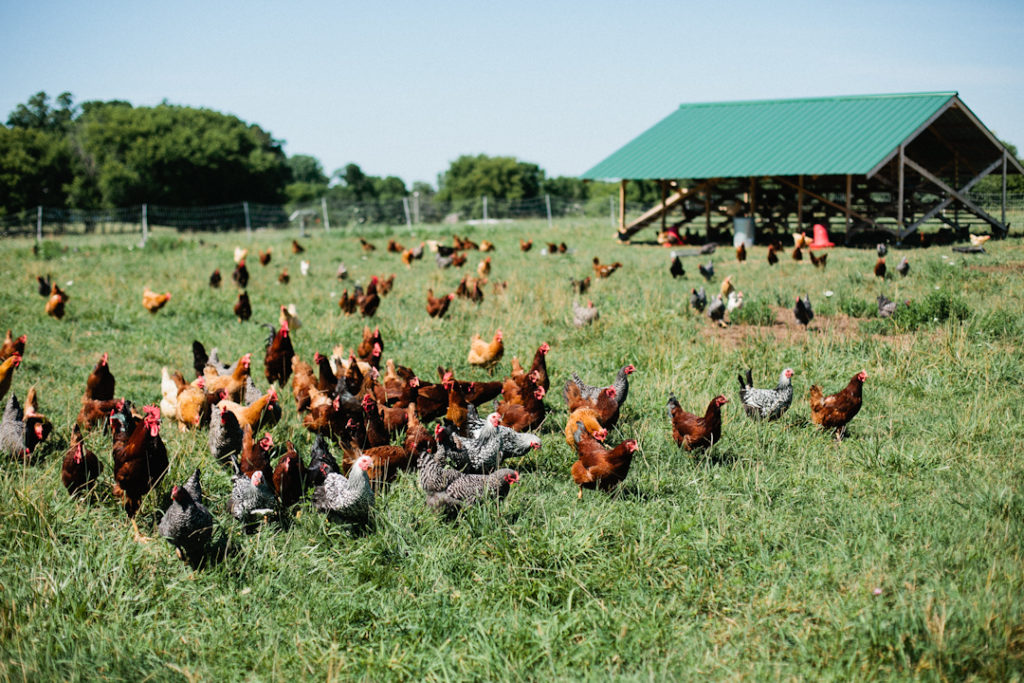
Pasture Raised Chickens at All Grass Farms
Do you supplement fresh grass with feed? What kind?
The beef herd and sheep are 100% grass fed. In winter they are fed grass and alfalfa hay. The dairy herd is about 90% grass fed. They do receive a small supplement of organic grains and beet pulp when they come into the barn while milking. The chickens, turkeys, and pigs are omnivores and could not survive on grass alone. Their pasture forage is supplemented with certified organic feed as well as leftover vegetables, raw milk, etc.
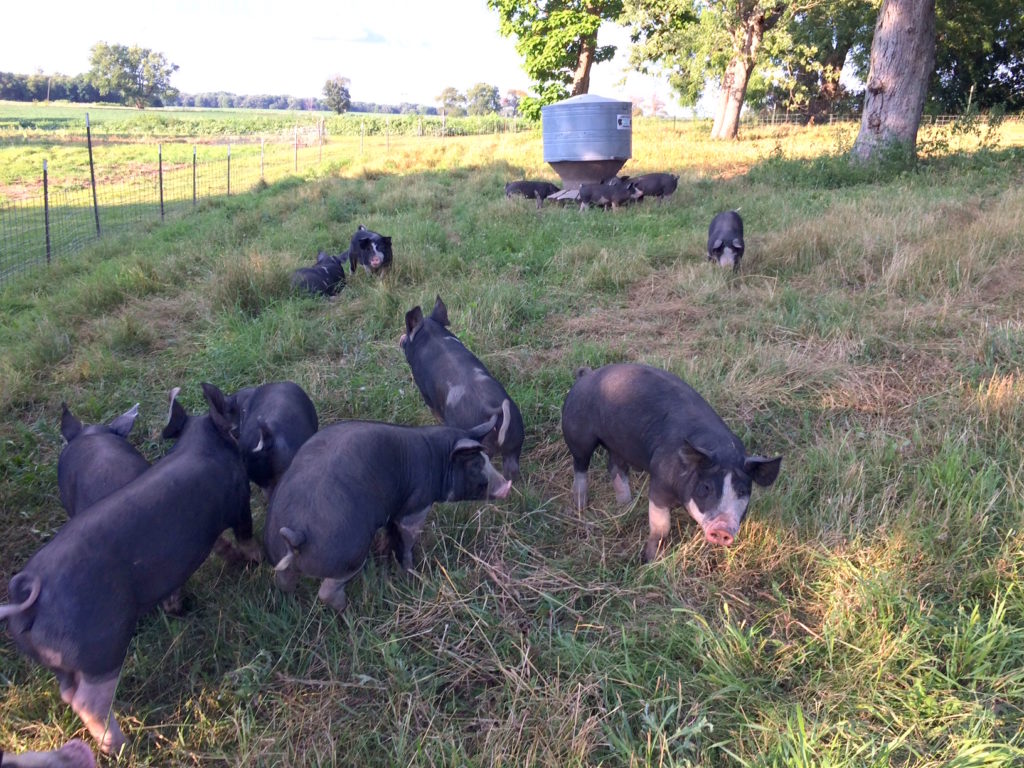
Pigs doing pig things under the trees at All Grass Farms
How did you become involved in farming?
I commuted into Chicago for almost 20 years, working for several insurance firms. But I really enjoyed the 8.5 acres we had behind our suburban house. In spring 2011, I started an insurance job that allowed me to work out of the home office, saving me 3 hours per day in commuting time. With that extra time I started raising more of the food for our family, including a large garden, chickens for eggs and meat, and four grass fed beef calves. Friends and neighbors started asking to purchase food from us, so in 2012 we started farming as a business. Sales kept growing and we kept expanding over the next five years. When we opened the farm store in 2016 sales really took off and we have been scrambling to keep up since.
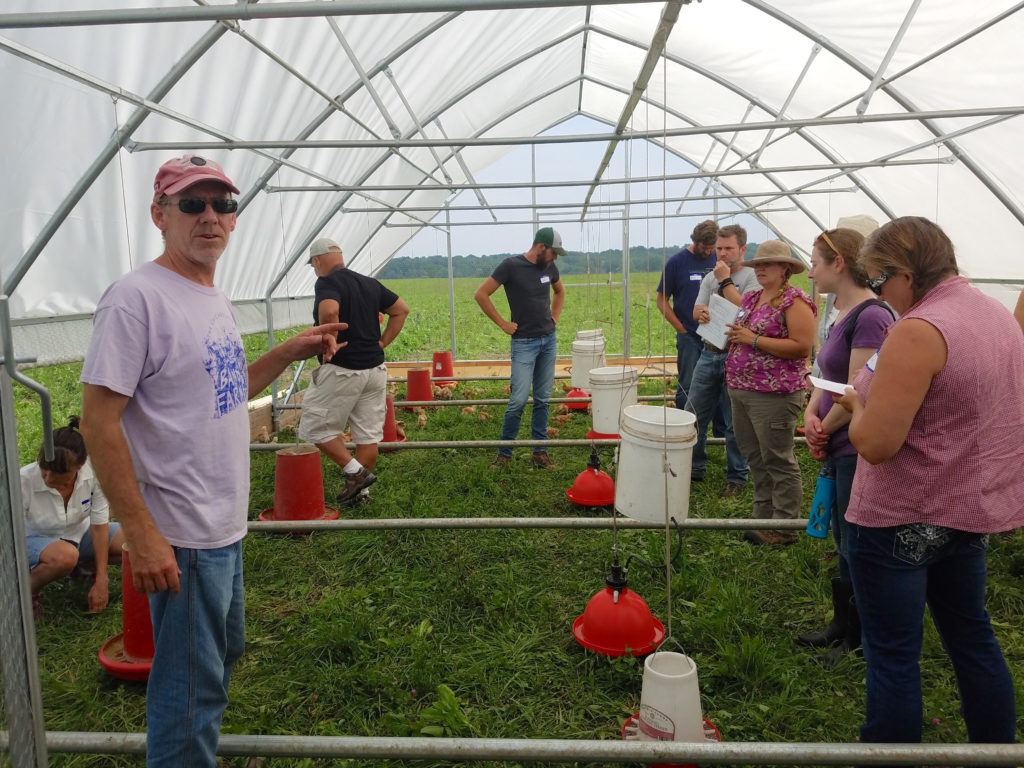
Cliff hosting a field day at his farm last year
Why is farming sustainably and humanely important to you?
Conventional agriculture as currently practiced is terribly damaging to our environment, and the large confinement operations producing most of our meat, dairy, and eggs are absolutely horrendous for both the animals and the workers. We know that it’s possible to farm regeneratively in a way that can actually restore health to the land, sequester carbon from the atmosphere, and treat animals and farmworkers with respect and dignity, while at the same time providing our customers with the most nutritious food possible.
How have the economics of farming changed in the last several years? What further changes are you anticipating?
The margins in conventional farming are so thin that only the largest and most efficient “factory” farms are able to make a profit, and to do so they must cut corners at every turn, including soil health, pollution, worker wages, and animal welfare. The current system favors large agribusiness firms that have a monopoly power over most areas of production. Offsetting that concentration of power, consumers are increasingly interested in sourcing local food from farmers and producers they trust. That is creating more opportunities for farms like ours to grow and meet this demand for local, humanely and sustainable produced products.
What do you expect the economic implications for Illinois would be?
If there are minimum animal welfare standards that all farms must meet nationwide, then it would not impact economics for any specific state that has set higher welfare standards. If states have uneven welfare requirements, then production will likely migrate to those states that have the lowest standards. I think having some minimum standards would be a relief to many farmers that feel they have to cut corners to compete.
Would you support a bill to end extreme confinement? Why or why not?
I definitely would support such a bill. All animals deserve to be treated and raised with respect and dignity.
How do you market and sell your products? Direct to consumers, CSA, through retailers?
We sell most of our products through our farm store. We also distribute through a CSA program – most customers still come to our farm to pick up their boxes. In addition, we accept online orders, but products ordered online are still picked up at the farm store or butchering facility.
To find Cliff’s farm on the Crate Free USA app search for Barrington Natural Farm/All Grass Farms.
More Info
Author bio: Layla Gallagher is an animal welfare advocate who has been involved with animal welfare since the age of 13. She has worked with several organizations concerned with the ethical treatment of animals and respect for the environment. She joined the Crate Free Illinois team in January 2016 as a volunteer Fundraising Coordinator.
